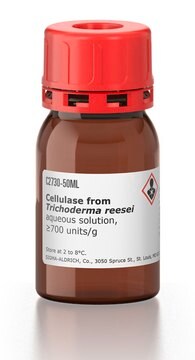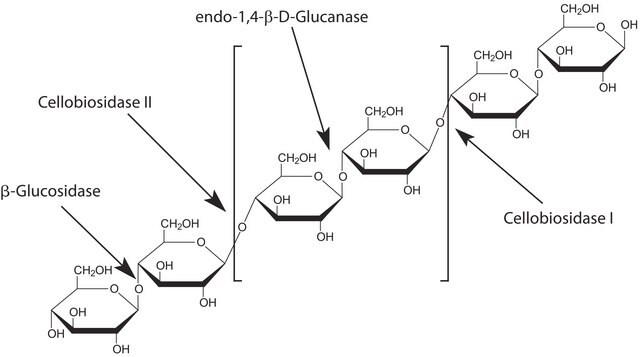C8546
Cellulase from Trichoderma reesei ATCC 26921
lyophilized powder, ≥1 unit/mg solid
Sinónimos:
1,4-(1,3:1,4)-β-D-Glucan 4-glucano-hydrolase
About This Item
Productos recomendados
form
lyophilized powder
Quality Level
specific activity
≥1 unit/mg solid
greener alternative product characteristics
Waste Prevention
Design for Energy Efficiency
Learn more about the Principles of Green Chemistry.
sustainability
Greener Alternative Product
solubility
deionized water: soluble 5.0 mg/mL (Sterile; In the presence of 0.15% polyhexamethylene biguanide (PHMB).)
greener alternative category
storage temp.
2-8°C
General description
Application
Biochem/physiol Actions
Unit Definition
Preparation Note
Other Notes
Substrate
signalword
Danger
hcodes
Hazard Classifications
Resp. Sens. 1
Storage Class
11 - Combustible Solids
wgk_germany
WGK 1
flash_point_f
Not applicable
flash_point_c
Not applicable
ppe
dust mask type N95 (US), Eyeshields, Faceshields, Gloves
Elija entre una de las versiones más recientes:
¿Ya tiene este producto?
Encuentre la documentación para los productos que ha comprado recientemente en la Biblioteca de documentos.
Los clientes también vieron
Nuestro equipo de científicos tiene experiencia en todas las áreas de investigación: Ciencias de la vida, Ciencia de los materiales, Síntesis química, Cromatografía, Analítica y muchas otras.
Póngase en contacto con el Servicio técnico







